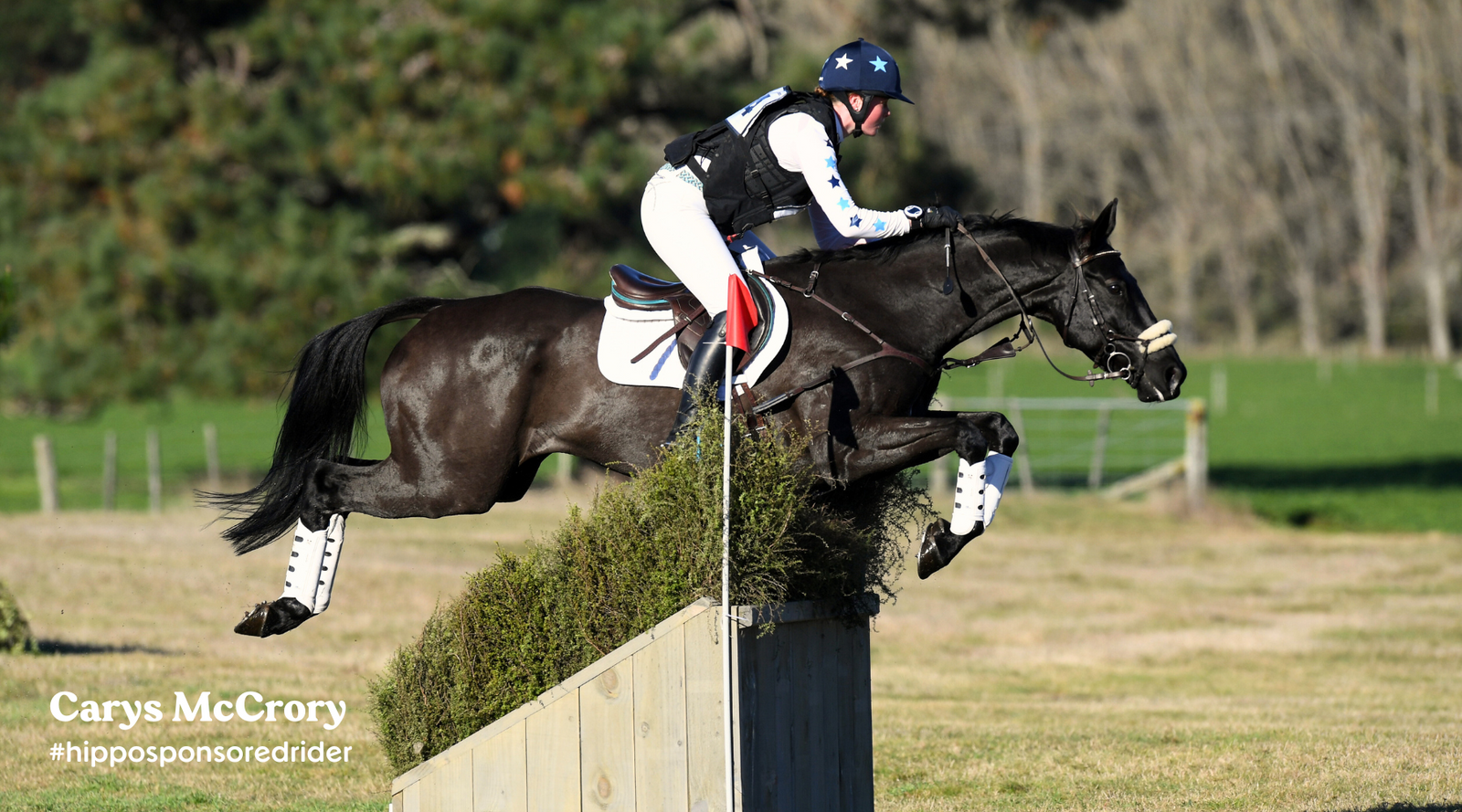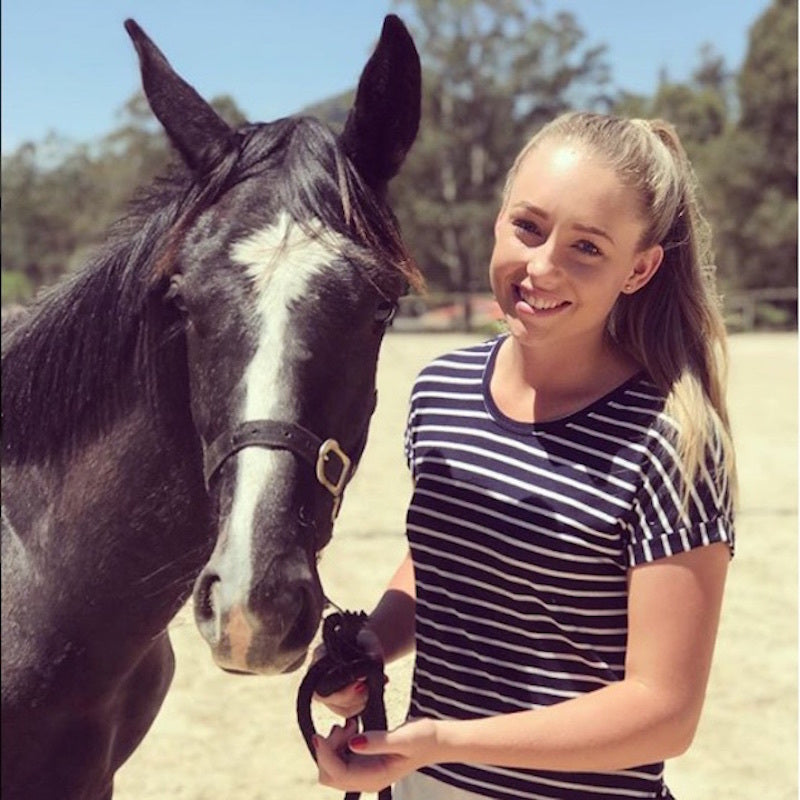Horse & Rider
Supporting Performance Horses: Remedies for dehydration, muscle strain, leg swelling and minor injury
by Fiona Lane December 07, 2025

The stresses and strains of show season can take their toll on performance horses. Strenuous exertion and jarring from competing on hard and uneven ground make it challenging to maintain peak performance across a long show season. It requires careful management to keep horses sound and performing at their best. We take a look at how to manage the most common challenges performance horses face including using the competition & racing safe remedies in our range to help keep horses sound and performing at their best all season long.
Dehydration & Electrolyte Imbalance in Horses
The physical demands of competition, training and travel can all lead to horses becoming dehydrated. Horses cool themselves primarily through sweating, which means they sweat more during hot, humid conditions and periods of strenuous exertion while training and competing. As sweat contains electrolytes, heavy sweating can result in an electrolyte imbalance which can impair muscle function and nerve transmission.
Horses can also be fussy about the water they drink, particularly when travelling to new and unfamiliar places.
How to manage dehydration & electrolyte imbalance in horses
Keep an eye out for symptoms of dehydration such as less frequent urination or urine that is darker than usual, dry gums or skin tenting (skin that remains raised when pinched).
To avoid dehydration, ensure constant access to clean water, especially when travelling. If your horse is fussy about their water, try introducing them to different water sources at home, to ease the pressure when travelling. You can add electrolytes and extra water to their feed and soak their hay to increase fluid intake.
You could also use our Performance Plus – Equine remedy. It’s formulated to provide all-round support during periods of strenuous exertion and the effects of dehydration. We recommend dosing as soon as the season starts to help prevent issues from emerging, and continuing until recovery from the last show is complete.
Muscle Strain & Soreness in Horses
The repetitive and intense exercise that goes hand in hand with show season can cause sore and strained muscles, especially when competing on hard summer ground. Having a horse that is hot to warm up and doesn’t allow the gradual warm up / cool down, and over-exertion during the excitement or pressure of competition can all result in micro-tears in muscle fibres that need to be dealt with quickly to prevent long-term impacts on performance.
How to manage muscle strain and soreness in horses
Putting in place warm-up and warm-down routines for your horse pre- and post-exertion can help to minimise ongoing issues. If you suspect over-exertion, icing, some light stretching and massage can also help. We also recommend dosing with our Sports Recovery remedy to support horses experiencing sore muscles and minor inflammation caused by strenuous exertion. Use our convenient pump bottle format to dose directly into the mouth during warm down, then repeat every half hour to assist with recovery.
Riders often experience aches and strains during show season, so we make Sports Plus – Athletes too.
Exercise-induced Swollen Legs In Horses
Constant jarring can result in some horses experiencing fluid retention in their legs and joints after exertion. This type of equine leg swelling is usually caused by the body struggling to remove the extra blood that flows into the tissues during exercise. If the swelling is around the joints, this could indicate an excess of synovial fluid being produced as a protective mechanism.
How to manage exercise-induced swollen legs in horses
For horses prone to exercise-induced leg swelling, a thorough warm-up and cool-down routine is essential. For additional support either as a preventative, or once minor swelling is present, try our Puffiness Plus remedy. Or there’s our Joints Plus – Equine remedy for horses experiencing stiff or sore joints, or minor swelling in the joints, after intense exercise. Both of these remedies are safe to use long-term across the whole show season and are competition & racing safe (not swab-able).
Horses with Splints
Injury of the splint bones and the ligaments between the splint and cannon bones – the small bones that run along with cannon bone – is a common issue in performance horses, particularly those in high-impact disciplines like show jumping, games, eventing, and racing. Younger horses that are still growing are most prone to splints, however, they can also develop in older horses that are actively competing due to the repetitive stress of high-speed work, jumping or making tight turns. In some horses, the cannon bone is offset causing toeing in or out, or uneven stress being placed on the splint bones.
How to manage splints in horses
A good farrier will ensure proper trimming and shoeing to ensure balanced movement. When possible, try to train on softer surfaces to reduce impact and use boots. Once splints are suspected, icing or hosing with cold water can help to reduce inflammation. You could also try our Splints Plus – Equine remedy. It’s formulated to support the healing and reduction of bony formations and other injuries which result from excess production of bone.
Hoof care for Horses
While a horse’s hooves are designed to absorb shock, constant exposure to different surfaces – from soft grass to hard-packed arenas – and uneven, rocky ground can weaken the hoof wall, and create pressure points that result in bruising or even abscesses.
How to manage hoof health
A good farrier is worth their weight in gold! Regular trimming and shoeing help to keep hooves balanced and in good condition. Good nutrition with a diet full of hoof-strengthening nutrients like biotin, zinc, copper and essential amino acids is also helpful. Being proactive is also recommended – checking hooves daily for cracked hooves, bruising, tenderness or other minor issues ensures problems can be caught early.
Our Healthy Hooves remedy assists with the absorption of minerals that are already present in a normal, healthy diet to promote hoof health in horses. For horses prone to hoof abscesses, we recommend keeping a bottle of our Abscess Plus for horses handy.
Calming Show Day Nerves
Flapping flags, loudspeakers and the strangeness of unfamiliar places can be overwhelming for horses, especially those competing for the first time. We make a whole range of calming remedies for horses, but the one we recommend for those travelling to shows is our Show Calm. This remedy is not swab-able and is formulated to promote calm in horses that get anxious or nervous when away from home. We have other remedies in our calm range for different situations or types of anxiety, so here’s a guide to which calming remedy is right for your horse.
Show Day Dosing
Our remedies come in two different formats – jerry cans or pump bottles. Jerry cans are designed for trough dosing while pump bottles are for delivering a direct concentrated dose. Pump bottles are also the perfect size for popping in your grooming kit or keeping in your float when you travel. So, can you refill your pump bottle from a jerry can? The short answer is no – and here’s why.
Remedies for Riders
If you also struggle to maintain your own stamina during a long show season, then our Rider Care range of remedies is for you! You can also read this blog post to find out more about our top seven remedies to help you survive show season.
More Show Day Remedies for Horses
We also make remedies to help horses look their best on show day, and to help both horses and riders manage the effects of constant travel to and from events. Read more.

Homeopathic Practitioner | BA, Dip Ed, Dip Hom AH (Animal Health)
Fiona J. Lane
Fiona Lane is the Founder of Hippo Health and an accomplished Animal Homeopath. Driven by a passion for effective and affordable natural health, she has formulated the Hippo Health and BioPet ranges of innovative, non-toxic remedies. Fiona is dedicated to providing straightforward, trusted solutions that support the well-being of horses, pets, livestock and people.
General Disclaimer: Always follow dosing instructions. Our remedies are formulated to support the natural immune system of horses, pets, livestock, and people. We do not claim to treat, medicate, or cure any health conditions. If you are worried an animal may be in pain or suffering, please contact your veterinarian.




